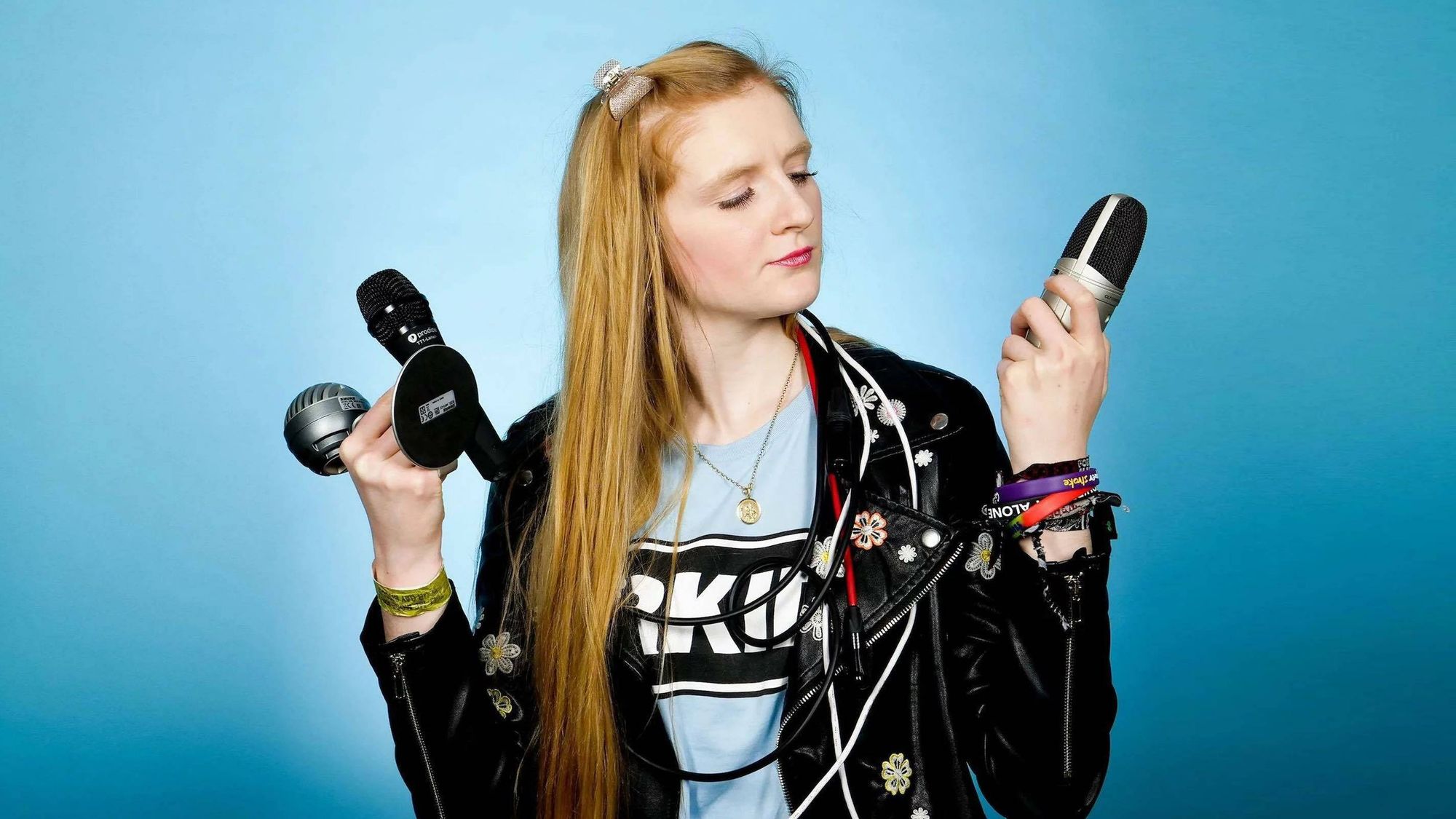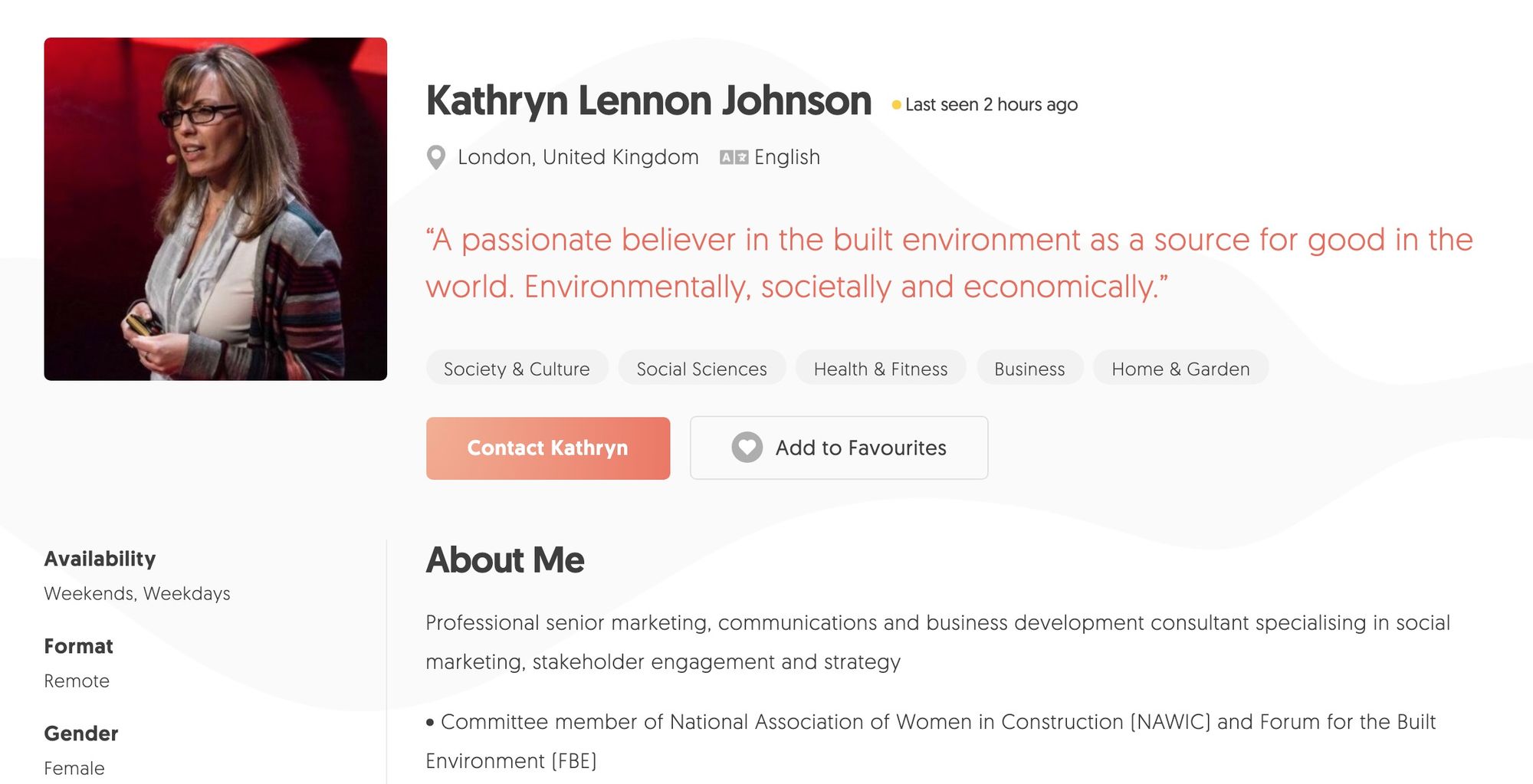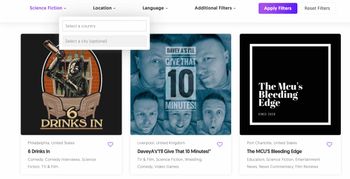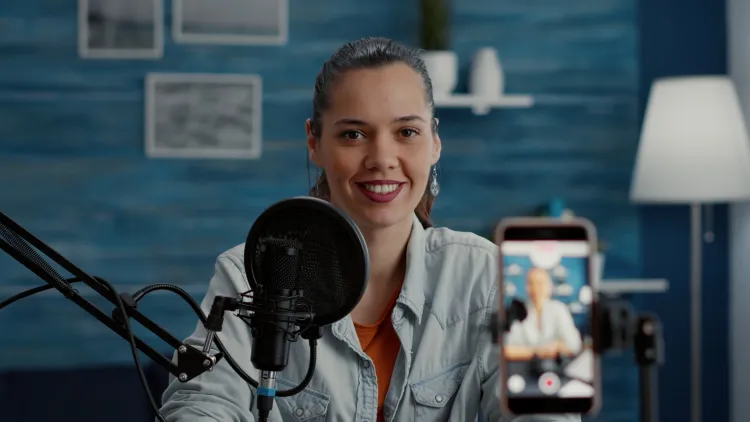Being a guest on podcasts is a great way to spread your message further, get free publicity for your brand, or establish your credibility within your field.
But as a marketing strategy, it only really works if you’re able to make a genuine impact on the listening audience. Most regular podcast listeners consume a lot of content - more than 7 hours a week on average!. And that makes it hard to stand out. As a guest, you need to grab their attention and make them take notice. By the end of the interview, listeners should be thinking “wow”, not “meh”.
You don’t need to be a comedian or professional entertainer to get listeners to remember your name. It just needs to be extremely clear you’re passionate about what you do and you know exactly what you’re talking about. And if you’re new to the whole process of doing interviews, that’s easier said than done.
So in this article we’ll take you through 9 tips you can follow to impress listeners when you get behind the mic.

Get booked on shows in your niche
With more than 70,000 members, MatchMaker.fm is the largest online community connecting podcasters & guests.
Join MatchMaker today1. Research the Podcast You’re Appearing On
If you’ve been booked as a guest, chances are you already have a solid understanding of what the podcast is about. But before the recording, you might want to take some time to refresh your memory. We advise listening to at least two episodes beforehand. Knowing the answers to the questions below will help you feel more relaxed before the interview, and it’ll prevent anything from catching you off guard
- How long are the episodes on average?
- Is it a standard interview show? Or are the conversations edited?
- Are there any recurring segments in the episodes?
- What are the main talking points or themes that usually come up?
- Are the intros pre-recorded or done live at the beginning of the episode?
- Is there an opportunity for guests to pitch their product or service at the end of the interview?
One other thing to be aware of is the host (or hosts) interview style. Understanding this allows you to adapt your own tone and delivery in accordance with what’s likely to resonate most with that particular audience.
- Is the host lively and energetic, or laid back and casual?
- Do they keep the focus on mainly on their guest, or have a back and forth conversation?
- Are there any questions they always ask their guests?
2. Rehearse Key Answers & Prepare Anecdotes
Once you’ve got a good grasp of the podcast and it’s host, it’s time to think about the main points you want to get across. Unless you’ve been interviewed hundreds of times before, you can’t just “wing it”. If you go in unprepared, you’ll probably end up fumbling over words or giving boring generic responses. So a little preparation goes a long way here.
Think about the kinds of questions the host is likely to ask you and write them down. Then practice your answers so they’re tight, crisp, and deliver your message clearly. Also try to think of any relevant stories or anecdotes you could use to illustrate your points. People tend to remember information much better when it’s presented in a relatable narrative format. But it can be hard to think of the perfect story when you’re put on the spot! So having a few anecdotes stashed in your back pocket can be a big help.
The more interviews you get under your belt, the less preparation you’ll have to do. Like everything else in life, it gets easier with practice. But when you’re just starting out, good preparation is the thing that will help stand out and make listeners remember your name.
3. Don’t Ramble
When the host asks you a question, keep your response focused and on track. A few tangents here and there are fine and generally help to give the interview a more natural feel. But you should always aim to guide your answers back towards the host’s original question. Repeatedly going off-topic can be quite frustrating for both the host and listeners.
Sometimes a host may not phrase their question in the best way. So don’t be afraid to ask them what they mean if you need to. They won’t be offended. That way you can be sure you’re touching on the right points in your response.
Lastly, be mindful of how long your answers are. If you’ve been speaking uninterrupted for 10 minutes, the host will probably be quite keen to move onto their next question! Do your best to keep things comprehensive but concise.
4. Get a Microphone

Have you ever listened to a podcast where the guest’s audio quality was terrible? Chances are, you probably didn’t make it through the full episode. If your audio quality offends listeners' ear drums, they’ll immediately switch off. It won’t matter how entertaining or informative you are.
Don’t let all your preparation go to waste by failing to consider sound. To be blunt, your internal laptop or phone mic just aren’t good enough. To get the most out of podcasting, you need to invest in a dedicated microphone. Fortunately there are loads of great plug-and-go USB microphones on the market that won’t break the bank. Here are some of our top recommendations:
- Blue Yeti ($128)
- Samson Q2U ($70)
- Rode NT-USB Mini ($99)
Having good sound quality automatically makes listeners perceive you as being more professional. And a good USB microphone should last you for years. If you’re serious about tapping into the power of podcasts, it’s an essential bit of kit.
5. Use Good Mic Technique
Once you’ve got your mic, you need to make sure you’re using it correctly. Here are some tips for getting the best sound quality when using your USB mic:
Distance - The further away from the mic you are, the worse the sound quality will be. So it’s important to remain relatively close throughout the recording. If you hold out your hand, spread your fingers, and look at the distance between your thumb and the tip of your pinky finger - that’s roughly how far away you should be from your mic when speaking into it.
Direction - As you talk, speak directly into your mic. If you’re off to the side, it will significantly reduce the volume of your audio. So make sure you’re head on. If you haven’t got a mic stand, you might want to set your mic on top of a stack of books so you don’t have to strain to keep yourself in the right position.
Mic Settings - Each mic comes with it’s own range of settings you can adjust. When you first get it, have a read through the manual or watch a tutorial on YouTube to help you calibrate the mic in a way that best suits your own voice.
6. Choose a Good Recording Environment
The best mic in the world will still pick up ambient sounds from a busy open-plan office or a noisy cafe. So you need to choose your recording environment carefully. You don’t need to soundproof entire rooms. But make sure you choose a nice quiet space where you’re unlikely to be interrupted or pick up pesky background noises.
If possible move computers, fans or other things that make a lot of noise into another room. Recording in a room that’s carpeted can also help as it dampens echoes. Don’t eat food or chew gum while you’re recording. Having a drink is fine, but move the mic away from your mouth when taking a sip. Likewise, if you need to cough or sneeze, turn your head away from the mic to avoid startling listeners with a loud peak in the audio.
7. Avoid Filler Language & Crutch Words
We all tend to have our own unique filler language and crutch words - things like “umm’s” , “ahh’s”, “you know’s” or other words and phrases you say out of habit. If you listen back to some of your own recordings, you’ll be able to figure out what yours are. Take note of them.
Crutch words and filler language aren’t major issues, but they can be distracting and may take away from the message you’re trying to get across. If you pay attention, you’ll notice that professional broadcasters and public speakers rarely use any crutch words. They’ve trained themselves to eliminate them from their speech.
Once you’ve figured out what your worst offending crutch words are, it’ll take some time and practice behind the mic to get rid of them. They tend to be pretty deeply ingrained habit patterns. So just be patient and work on slowly phasing them out.
8. Pitch Your Product or Service Tactfully
If you’re going on podcasts as a guest, you’re probably doing it for a reason. You might want to generate free publicity for your own brand, attract new listeners to your own podcast, or promote the launch of a new book. Podcast guesting can help you do all these things, but you need to make sure you’re approaching it in a tactful way.
Referencing your product or service a couple of times throughout the interview is generally good practice. It’s a simple prompt or reminder for listeners who may be interested in learning more. But you need to be careful here. Only mention your product in contexts where it actually fits.
Don’t crowbar your product into your answers just for the sake of it. It’ll disrupt the natural flow of the interview and audiences generally don’t like it when they feel like someone is trying to aggressively sell them something. Less is definitely more in this regard.
With that said, make sure you end each appearance with a clear call-to-action telling listeners exactly where you’d like them to go - whether that’s your own website, your podcast page, or to search for your book on Amazon. Most hosts will be kind enough to tee up this opportunity for you with a question like “Where can people go if they’re interested to learn more?”.
9. Promote the Episode
If you’ve gone to the trouble of doing the interview, then it only makes sense to promote it as best you can. Most hosts will be keen for you to help them amplify their voice by sharing the interview across your own channels. Some hosts may even send you unique graphics or audiograms you can use to advertise the episode on social media - if they do, use them! And also make sure you tag the host where possible for added visibility.
Get Booked on Podcasts the Easy Way
Following these tips should help you make more of an impact in your interviews. As mentioned previously, it will definitely get easier with practice. But in the beginning it’s important to be aware of these basic do’s and don’ts.
Creating a profile on MatchMaker.fm is the easiest way to book your next podcast guest slot. It’s an online booking service that matches podcasters with ideal guests. So if you’re looking for speaking opportunities, all it takes a few clicks.
The first step is to create your guest profile. Simply upload a photo, add your areas of interest, and fill in some basic details about yourself. For more on how to create the perfect guest profile, check out this article.

Once you’ve created your guest profile, it’s time to search the database of podcasts. There are thousands to choose from, so the quickest way to narrow down your search is to use the filters provided. You can filter shows by podcast category, location, language, and more.
If you spot any podcasts that look like a good opportunity, you can quickly add them to your favourites by clicking the heart icon on the show profile. Once you’ve found them, it’s time to pitch yourself as a guest. For more on how to craft the perfect podcast guest pitch, check out this guide.

Get booked on shows in your niche
With more than 70,000 members, MatchMaker.fm is the largest online community connecting podcasters & guests.
Join MatchMaker today





